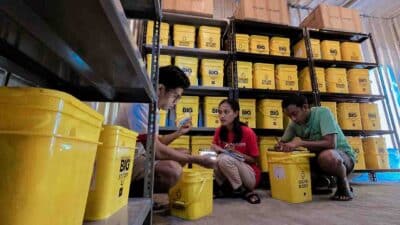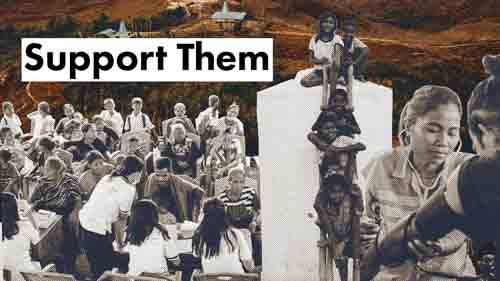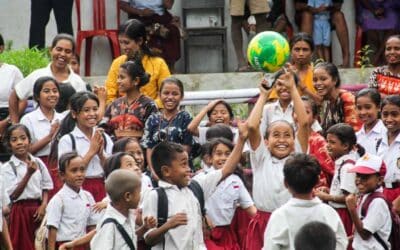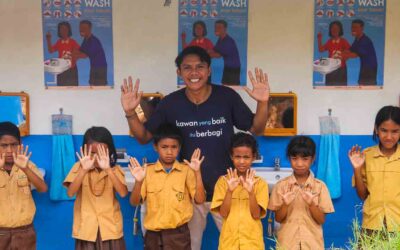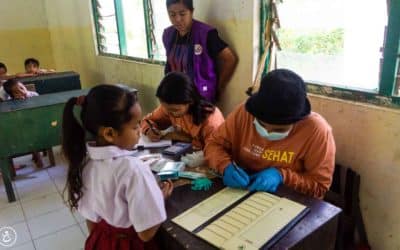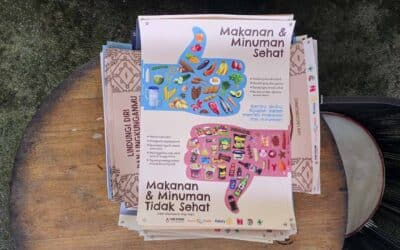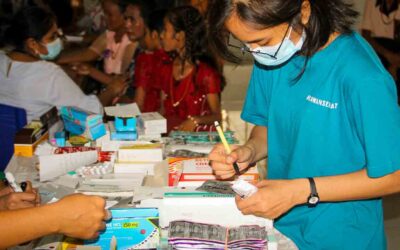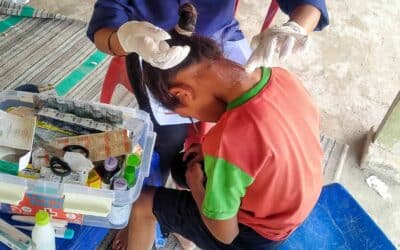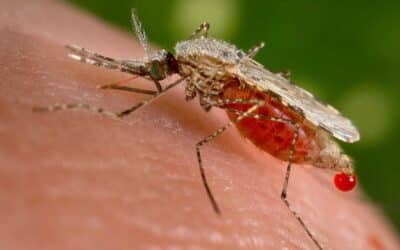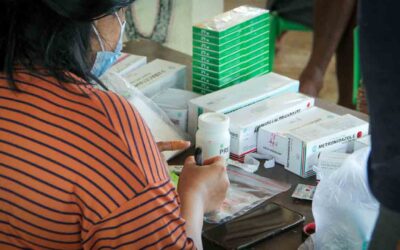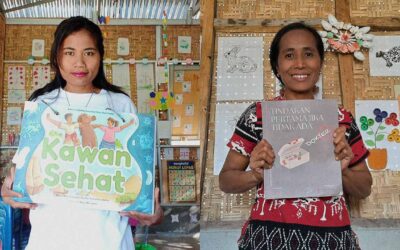Through the Primary Medical Care program, Kawan Sehat health workers provide treatment for fevers, wounds, and malaria in villages lacking access to doctors. They carry essential medicines, adhere to established medical protocols, and refer emergency cases promptly to prevent delays in care.
Donate
Support Care
Programs
All projects
Quick News
Field updates
Stories
Field stories
Welcome to the Fair Future News! Our teams have crafted each article, story, and update.
These pages showcase unique content reflecting our mission, work, and community interactions.
True stories. Real people. Humanitarian action in motion.
Here you’ll find stories from the field—100% real, 100% original. Every article is written by us, by those who live these moments, walk these roads, and treat these illnesses. We write them by hand, after the long days, often from tents or remote villages, because we believe in showing what’s real.
The people, the lives, the wounds, the repairs—this is not fiction. This is our daily reality in ultra-rural Indonesia. Every photo is taken by us. Every word comes from those who act. From emergency responses and clean water to child health and malaria cases, these stories reflect both the daily struggles and the incredible strength of those we serve.
Our News page is more than just updates. It’s a record of direct action. A collection of emotions, medical cases, construction progress, and social encounters. We don’t write for clicks—we write for those who care, those who want to know, and those who support our mission.
It’s raw, human, sometimes difficult, but always true. Read them, share them, let them move you. This is how change begins—with knowledge, emotion, and connection.
Alex Wettstein – Fair Future Foundation – Updated in June 2025
Your donation becomes real medical care
Help us reach the unreachable. Every franc you give funds medicines, dressings, tests, and clean water to prevent sickness. It powers solar lights for cold vaccines and night care. It keeps Kawan Sehat agents and Fair Future teams travelling hours to remote villages without doctors or clinics.
Our latest articles
Pure Joy: Footballs Bring Smiles to Remote Sumba Children
The children of Haray, an extremely remote village in East Sumba, were so happy to receive...
Erwin Joins as #PrimaryMedicalCare Program Coordinator
We are excited to welcome Erwin Umbu Dangu Ela, known as “Erwin,” as the new coordinator of the #PrimaryMedicalCare program. Erwin will oversee all activities, ensure smooth implementation on the ground, and support Kawan Sehat agents. A long-time volunteer since 2019, we’re thrilled to offer him this opportunity.
Kawan Sehat Expands with New Anti-Smoking Campaign Page
Kawan Sehat is expanding! We’re excited to introduce a new page in our children’s book promoting healthy living. This new section focuses on the dangers of smoking, especially secondhand smoke, which harms non-smokers, including children. This new page will be added to our Kawan Sehat book. Smoking is not healthy—smoking kills. Don’t smoke.
Local Impact: Fighting Malaria with Prevention and Care
The Fair Future Foundation and Rotary International have launched the Zero Malaria Program to combat malaria in remote Indonesian regions. Our efforts include distributing insecticide-treated nets, conducting rapid diagnostic tests, and educating families on disease prevention. Each action taken is a step towards saving lives and creating better futures for everyone involved!
Tons of Medical Supplies for Life-Saving Programs
We’ve received the latest batch of pharmaceuticals, disinfectants, bandages, and medical equipment—hundreds of kilos worth—used in our #PrimaryMedicalCare program and infectious disease prevention efforts, especially malaria. More supplies are on the way. Thank you for helping us continue this vital work in East Indonesia.
Promoting Healthy Living: Posters for Disease Prevention
With our Rotary International partners, we’ve printed thousands of posters promoting healthy living and disease prevention in regions where diseases like malaria are endemic. These posters, available in both laminated and fabric formats, will be distributed across ultra-rural areas, schools, medical centers, and public spaces.
Guidebook for Storytellers Using Kawan Sehat Book
We’re excited to introduce a new guidebook for teachers and storytellers using our Kawan Sehat book for children in isolated rural areas. This guide offers a clear, step-by-step approach to explaining the book effectively, ensuring that vital information is consistently and clearly conveyed. It will be distributed to all teachers along with the Kawan Sehat book.
First Medicine Shipment Ready for East Sumba Delivery
The first medicines are arriving, and we’re sorting and packing them. In a few days, we’ll transport them to East Sumba with our two fully loaded trucks. These medicines are vital, as we’re nearly the sole provider for hundreds of thousands of people. Thank you for supporting the third year of our #PrimaryMedicalCare program.
Primary Medical Care: Saving Lives in Remote Regions
The Primary Medical Care program provides crucial medical aid to the isolated regions of East Sumba, where access to healthcare is limited. Your support will help sustain this vital mission and provide essential treatment to those in urgent need.
Malaria in Rural Areas: A Deadly Threat from Mosquitoes
Don’t confuse Dengue with Malaria. While Dengue is common in cities, Malaria is endemic in rural areas where we work. This photo shows the source of Malaria infection, mainly transmitted by infected female Anopheles mosquitoes. Without treatment, Malaria can become severe and fatal within 24 hours. We continue the fight through our #ZeroMalaria program.
Swiss Fair Future Donates CHF.21,446 for Medical Care
As part of our #PrimaryMedicalCare 2024-2025 program, we are thrilled to announce that the Swiss Foundation has donated the first third of the annual budget—21,446 CHF (392 million IDR). This funding allows us to restock medical supplies, purchase medicines, and manage logistics for the next 12 months.
Empowering Health Workers with Essential Care Guides
In the remote region of Mbinudita, East Sumba, two dedicated health workers are making a difference through the Primary Medical Care program. Equipped with essential care guides, they deliver life-saving medical care and provide education to thousands. Their impact extends beyond health, influencing every aspect of community well-being. These women are more than caregivers – they are superheroes in their communities.



